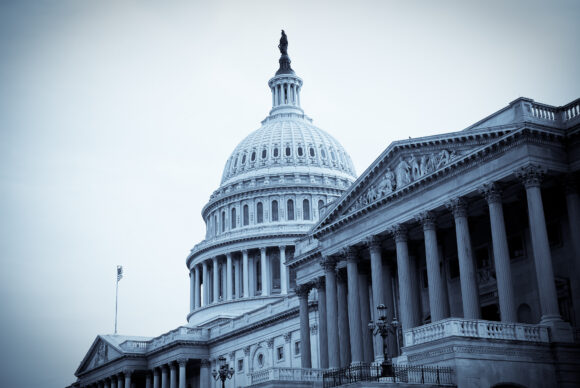On May 15, 2025, Rep. Scott Fitzgerald (R-Wis.) reintroduced legislation in the U.S. House of Representatives that aims to curtail the authority of the Federal Insurance Office (FIO) by eliminating its subpoena power. Known as the Insurance Data Protection Act, the bill reflects growing concerns among lawmakers and insurance industry leaders about the FIO’s recent efforts to expand its oversight, particularly in the context of climate-related data collection.

A Renewed Effort to Curb Federal Overreach
First introduced by Fitzgerald in September 2023, the Insurance Data Protection Act seeks to restrict what critics describe as federal overreach into areas traditionally governed by state regulators. In a statement accompanying the bill’s reintroduction, Fitzgerald accused the FIO of overstepping its mandate, arguing that recent actions to gather insurance underwriting data under the banner of climate risk mitigation exemplify “unelected bureaucrats advancing a political agenda.”
“Insurance regulation has long been the domain of the states,” Fitzgerald stated. “The FIO’s attempts to collect data on underwriting and climate risk are not only redundant but also politically motivated. This legislation ensures that the FIO does not wield investigative powers that were never intended for it.”
Background: FIO’s Climate Risk Initiative Sparks Industry Backlash
Fitzgerald’s renewed legislative push follows controversy surrounding a recent FIO report, which the agency touted as the “most comprehensive data on homeowners insurance in history.” Released earlier this year by the U.S. Department of the Treasury, the report was based on the FIO’s initiative to collect data from property and casualty insurers, beginning with an original proposal in October 2022. The report was intended to provide federal insight into the impact of climate change on insurance markets.
However, the report drew immediate criticism from leading industry organizations, which called it misleading, incomplete, and lacking sufficient context. Industry trade groups argue that the FIO’s data-gathering efforts not only duplicate work already conducted by state regulators but also risk politicizing what should be a neutral regulatory landscape.
Initially, the FIO had planned to coordinate its data collection efforts with the National Association of Insurance Commissioners (NAIC). But by the end of 2024, NAIC reportedly terminated its data-sharing arrangement with the FIO, citing significant concerns about the methodology and implications of the office’s ongoing work.
Industry Groups Rally Behind Legislation
Major insurance industry associations—including the National Association of Mutual Insurance Companies (NAMIC), the American Property Casualty Insurance Association (APCIA), the Independent Insurance Agents & Brokers of America (Big “I”), and the National Association of Professional Insurance Agents (PIA)—have voiced their support for Fitzgerald’s bill.
NAMIC’s Senior Vice President of Federal and Political Affairs, Jimi Grande, emphasized that the FIO was never intended to function as a regulatory or enforcement agency. “FIO was created under the Dodd-Frank Act with a narrow mission: to serve as a source of information and coordination for federal policymakers—not to investigate insurers or compel the production of proprietary data,” Grande said. “This bill reinforces that original purpose by removing its subpoena powers and keeping the office focused on analysis and reporting.”
Grande added that while some members of Congress have proposed more sweeping reforms, including abolishing the FIO entirely, the Insurance Data Protection Act represents a necessary first step. “At a bare minimum, Congress should consider reforms like removing the office’s subpoena powers to prevent further mission creep,” he said.
APCIA echoed similar sentiments. Sam Whitfield, the association’s Senior Vice President of Federal Government Relations, stated that the legislation aims to “right-size the role” of the FIO. “This bill removes redundant and unnecessary data collection powers and ensures stronger protections for non-public information. At the same time, it allows continued access to data and coordination with primary regulators—the state agencies that have effectively overseen insurance for decades,” he explained.
A Crossroads for the FIO’s Future
As debate continues over the appropriate role of the Federal Insurance Office, Fitzgerald’s bill marks a pivotal moment in the ongoing conversation about federal versus state regulatory authority in the insurance sector. While the FIO has argued that collecting climate-related data is vital to understanding emerging systemic risks, opponents argue that such efforts stray beyond its statutory boundaries and could set dangerous precedents.
With more legislation aimed at reforming—or even dismantling—the FIO reportedly in the pipeline, Fitzgerald’s proposal could become a litmus test for how Congress ultimately chooses to define the federal government’s role in an industry long governed by state authority.
The bill is now pending consideration in the House Financial Services Committee, where it may face both bipartisan scrutiny and support, especially as lawmakers weigh the increasing intersection of climate policy, consumer protection, and economic regulation.
In the months ahead, stakeholders from both the public and private sectors will be watching closely, as the outcome of this legislative effort could significantly reshape how insurance oversight is structured at the federal level.
